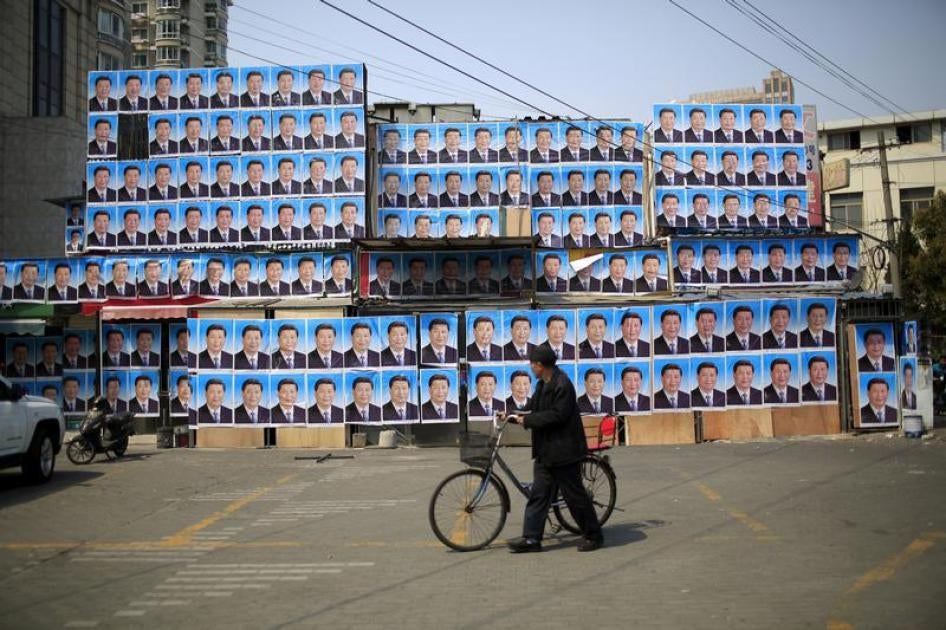(New York) – The Chinese government aggressively stepped up its campaign against civil society activists and online speech in 2016, Human Rights Watch said today in its World Report 2017. This widening attack on rights, which began when President Xi Jinping took office in March 2013, included interference in Hong Kong’s democratic institutions and abuses carried out beyond China’s borders.
In the 687-page World Report, its 27th edition, Human Rights Watch reviews human rights practices in more than 90 countries. In his introductory essay, Executive Director Kenneth Roth writes that a new generation of authoritarian populists seeks to overturn the concept of human rights protections, treating rights as an impediment to the majority will. For those who feel left behind by the global economy and increasingly fear violent crime, civil society groups, the media, and the public have key roles to play in reaffirming the values on which rights-respecting democracy has been built.
“The future for human rights in China gets ever bleaker under the leadership of President Xi Jinping,” said Sophie Richardson, China director at Human Rights Watch. “The authorities have targeted rights-promoting groups and boldly strengthened efforts to control them.”
The Chinese government did not loosen its intolerance of dissent in 2016. Many peaceful critics of the government remained locked away, including Nobel Peace Laureate Liu Xiaobo and Uighur economist Ilham Tohti. Sixteen of the human rights lawyers and supporters among the 300 detained during a nationwide raid in July 2015 are still facing trial; two have been handed harsh sentences.
The year was marked by numerous restrictions on the media and the Internet. In February, President Xi called on the media to pledge absolute loyalty to the Communist Party. Agencies tasked with such controls issued new directives to gag a range of media, including video, apps, games, news websites, and live streaming platforms.
The Chinese government’s snatching of critics, including foreign nationals, from Hong Kong and other countries attracted global attention in 2016. The circumstances surrounding their abductions are still unclear, along with the roles played by the Chinese government and the governments where these individuals went missing.
The central Chinese government quashed pro-independence voices in Hong Kong, and Hong Kong authorities failed to vigorously protect its democratic processes. After the Hong Kong government disqualified six pro-independence candidates from the elections of its Legislative Council, Beijing interfered in a politically charged court case to compel a Hong Kong court to disqualify from office two elected pro-independence legislators.
In the ethnic minority regions of Xinjiang and Tibet, Beijing continued its highly repressive rule, curtailing freedoms in the name of countering “splittism” or “terrorism.”
The Chinese government passed the Foreign NGO Management Law in April, and the Cybersecurity Law in November, with minimum changes in the face of domestic and international criticisms about their potential for rights abuses.
At the United Nations, China blocked discussion or abstained on resolutions designed to protect human rights.
“Instead of persecuting activists and civic groups, the Chinese government should recognize their important contribution to Chinese society,” Richardson said. “Otherwise Beijing’s reputation as a global rights abuser only becomes more entrenched.”








